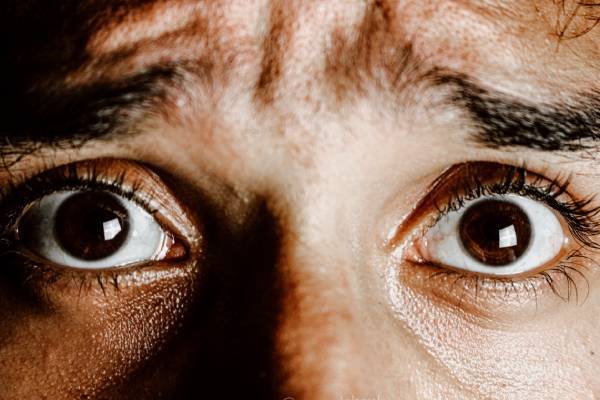
Panic attacks are the whip of the 21st century. The vegetative “storm” experienced by a person at the moment of the attack, so scary that provokes the fear of loss of control, madness, some incurable disease, and even death.
A panic attack is an “emergency” mode turned on by our psyche, it’s a reaction to danger – real or, most often, imaginary.
Symptoms of PA: sweating, rapid pulse, chill, tremor, breathlessness (suffocation), difficulty breathing, dizziness, feeling of oncoming fainting, nausea as well, feeling of derealization and depersonalization (“all this isn’t happening to me”), the feeling of numbness or tingling in my limbs, confusion of thoughts, abdominal pain, severe fear, which hard to explain and control.
How to help someone during a panic attack:
– take the person by the hand, speak with confidently and in a calm tone, even if you are feeling uncomfortable, in order to give the impression that you control the situation;
– explain to the person what is happening to them, tell them that the PA will end in a few minutes, they just need to wait. Even if it seems to you that a person doesn’t hear you, keep talking that symptoms are difficult to tolerate, but they are not dangerous, that they won’t go crazy and will not die, it’s going to be easier.
– you need to regulate the breathing, to start the weakening of the symptoms. Offer a person to breath in a bag tightly pressed to the mouth or just in the cupped hands. The level of CO2 will increase and air exchange will normalize;
– offer any breathing technique. Control this process, guiding the person’s breathing “come on, breathing in – breathing out” breathing in and loudly breathing out through the mouth, breathing for 6 accounts: 1-2 breathing in, 3 breath-holding, 4-5-6 long breathing out;
– switch the attention of the person with the PA: offer to count from 100 to 1 in reverse order, to play word games, count items of the same color, consider an advertising poster (ask to describe aloud absolutely every detail);
How to help yourself during a panic attack:
– “ground yourself”. Literally feel the surface under your feet, the area of contact between your feet and the floor. Pay attention to the sensations, focus on them;
– try to bring yourself back to reality: who I am, where I am, what time is it, where I’m standing/sitting on, what’s going on around me, what I see, what I hear, what I feel with my skin;
– warm up: if there is a possibility – wrap yourself in a blanket, a large jacket; or take a hot-water bottle. It will help you restore blood circulation in your limbs and disperse the blood throughout the body;
– control your breath, focus on it, breathe on the square, breath in-pause-breath out-pause: breath in on the account of “four” and breath out on the account of “eight”, with your eyes leading from the corner to the corner of any rectangular object; breathe in a package;
– choose any object, its detail. Study the selected object as closely as possible, try to notice and mentally (or aloud) describe all the details;
– make yourself realize that it’s just a temporary attack, you won’t go crazy, won’t get sick and won’t die; it’s unpleasant, but not dangerous, soon it’ll go away.
Self-therapy can be an essential tool for personal growth and self-improvement.
Browse through our courses and see the positive changes they can bring to your life.
You are not sure where to begin?